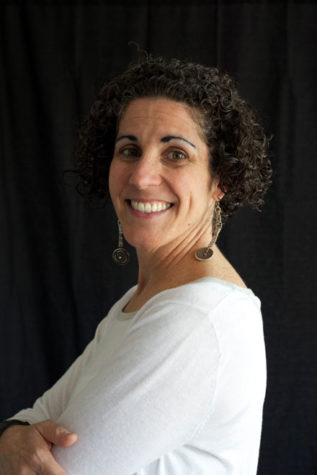
Virginia Dearani
Virginia Dearani is the founder and director of the One Tree Wholistic Learning Center and the Roots and Fruits preschool program in South Portland. The staff and children of Roots and Fruits are diverse in social and economic culture and ethnicity, which allows the environment to emulate life outside the center. Roots and Fruits recently celebrated its ten-year anniversary.
How did you become interested in education?
My background was in violence prevention and intervention. I was doing a lot of advocacy, working within organizations and within schools, looking at issues of family violence, dating violence, school violence, and gang violence. My work caused me to think about ways to work with children who were bearing witness to violence, either directly or indirectly. I felt inspired when my position was cut in one of my former jobs, and many people encouraged me to go back to school, so I asked, “How could I start a school, be really intentional, where prevention would be happening?”
Why did you choose early childhood education and daycare as your initial focus?
Many of the things I had been witnessing had root causes in issues of conflict around difference or oppression. I felt like there were many topics that young children could use the opportunity to talk about. I wanted to have it be diverse economically, and I knew I wanted it public. I decided to do a day care because that was reaching as young as I could, but also a structured business that the area needed. I designed the preschool to start out, and went from there.
Where are you originally from?
Norwalk, Connecticut. Then my family moved to New Hampshire right before high school. I have seven sisters and one brother, so I was raised in a pretty tribal environment.
What do you mean by “tribal?”
My dad is Arabic and Syrian. My mom is Irish. We had nine siblings in one house. You feel communal all the time. Being in a bedroom with two other siblings, I had that feeling of everyone having each other’s back, even if it got icky and challenging at times (especially with eight women). It always felt tribal, whether we were doing dishes or doing laundry or watching some family show; there was this family community atmosphere to it.
You are very interested in the family background of the children who participate in your programs. Why?
I ask my families to fill out a lot of paperwork and one of the biggest questions that I end up following up on is their family background. Sometimes, it’s the first time they’ve ever heard the question. They don’t always know how to answer it. For me, it is helping the family and the child to go on that journey. You’re not going to end it here, but at least it’s the start of a dialogue. As children continue in school, they are around children of many different backgrounds. We focus on the commonalities within the differences, so it’s a daily dialogue. In the end, they’re all connected, and we’re all here to support each other. That understanding that “I’m from a different root,” I think is really important because it helps them understand how to plug into the world and where they fit, versus just going with the flow. I think you can start very young with messages like that with children. You’d be amazed how much they know already.
What are some of the challenges you’ve seen with the work that you’ve been doing?
I think the biggest challenge is how to talk about these topics, whether it’s issues of racism or violence, but keep our children innocent. I really believe you can have a dialogue in a very simple, loving way, coming from a non-fear place that empowers all children to be leaders or be an ally to whomever they meet. I think the beauty of starting really young is the children keep it in a light place, even when talking about topics that are hard and volatile. You can keep it really simple, and they’ll take your lead.
